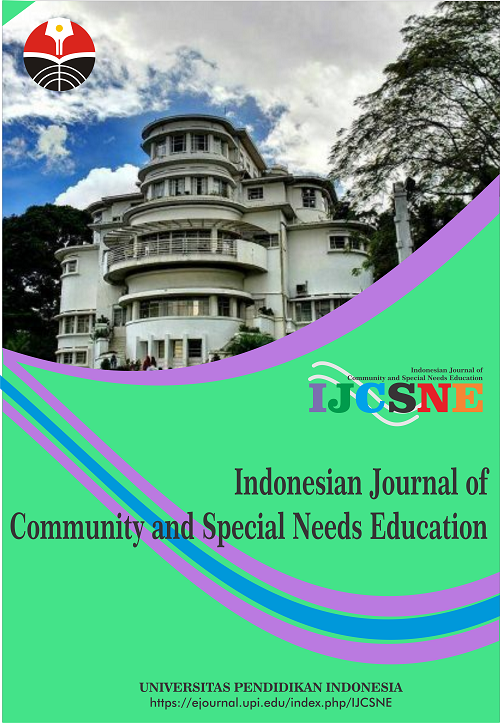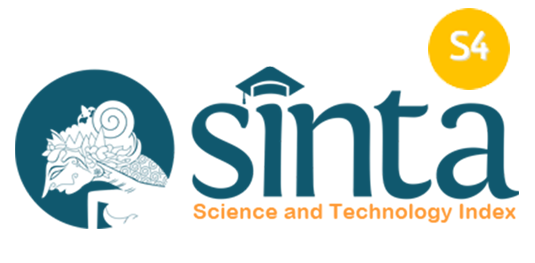Perceived Social Responsibility and Vaccine Hesitancy Among Parents of Grade 12 Student in Laboratory High School
Abstract
Concerns about vaccine hesitancy are growing worldwide, and now parents are also refusing to vaccinate their children because of vaccination issues even against vaccine-preventable diseases. Hence, this study was conducted to determine the level of vaccine hesitancy and perceived social responsibility in parents and their association with one another. The novelties in this research are (1) Level of Perceived Social Responsibility among Parents, (2) Level of Vaccine Hesitancy among Parents, and (3) Association between the Level of Perceived Social Responsibility and Level of Vaccine Hesitancy. In this study, a quantitative-descriptive research design was used to find out the level of acceptability among the 40 selected parents of Grade 12 students in Sultan Kudarat State University (SKSU) – Laboratory High School. A random sampling technique was utilized in this study. The results implied that the parents have a high level of perceived social responsibility. The results also showed that the parents have a low level of vaccine hesitancy. As to the test of the association between perceived social responsibility and vaccine hesitancy, it shows that there is a statistically significant association between them. Therefore, parents of Grade 12 students have a high level of perceived social responsibility and know that vaccinations are part of their responsibilities as citizens.
Keywords
Full Text:
PDFReferences
Anggraeni, S., Maulidina, A., Dewi, M. W., Rahmadianti, S., Rizky, Y. P. C., Arinalhaq, Z. F., and Al-Obaidi, A. S. M. (2020). The deployment of drones in sending drugs and patient blood samples COVID-19. Indonesian Journal of Science and Technology, 5(2), 193-200.
Dirgantari, P. D., Hidayat, Y. M., Mahphoth, M. H., and Nugraheni, R. (2020). Level of use and satisfaction of e-commerce customers in covid-19 pandemic period: An information system success model (ISSM) approach. Indonesian Journal of Science and Technology, 5(2), 261-270.
Dubé, E., Vivion, M., and MacDonald, N. E. (2015). Vaccine hesitancy, vaccine refusal and the anti-vaccine movement: Influence, impact and implications. Expert Review of Vaccines, 14(1), 99-117.
Gowda, C., Schaffer, S. E., Kopec, K., Markel, A., and Dempsey, A. F. (2013). A pilot study on the effects of individually tailored education for MMR vaccine-hesitant parents on MMR vaccination intention. Human Vaccines and Immunotherapeutics, 9(2), 437-445.
Hamidah, I., Sriyono, S., and Hudha, M. N. (2020). A Bibliometric analysis of Covid-19 research using VOSviewer. Indonesian Journal of Science and Technology, 5(2), 209-216.
Hasanah, L., Hakim, W. L., Aminudin, A., Sahari, S. K., and Mulyanti, B. (2020). A design and performance analysis of a telemetry system for remote monitoring of turbidity of water during the covid-19 pandemic. Indonesian Journal of Science and Technology, 5(2), 299-307.
Hashim, S., Masek, A., Abdullah, N. S., Paimin, A. N., and Muda, W. H. N. W. (2020). Students’ intention to share information via social media: A case study of COVID-19 pandemic. Indonesian Journal of Science and Technology, 5(2), 236-245.
Hendrix, K. S., Sturm, L. A., Zimet, G. D., and Meslin, E. M. (2016). Ethics and childhood vaccination policy in the United States. American Journal of Public Health, 106(2), 273-278.
Kovalchuk, O. S. (2010). Developing a psychodiagnostic tool to measure social responsibility of personality. Psychological Aspects of Innovative Changes in Organization and Organizational Development, 92-93.
Lazarus, J. V., Ratzan, S. C., Palayew, A., Gostin, L. O., Larson, H. J., Rabin, K., and El-Mohandes, A. (2021). A global survey of potential acceptance of a COVID-19 vaccine. Nature Medicine, 27(2), 225-228.
Machmud, A., and Minghat, A. D. B. (2020). The price dynamics of hand sanitizers for COVID-19 in Indonesia: Exponential and cobweb forms. Indonesian Journal of Science and Technology, 5(2), 176-184.
Migriño Jr, J., Gayados, B., Birol, K. R. J., De Jesus, L., Lopez, C. W., Mercado, W. C., and Tulagan, G. (2020). Factors affecting vaccine hesitancy among families with children 2 years old and younger in two urban communities in Manila, Philippines. Western Pacific Surveillance and Response Journal: WPSAR, 11(2), 20.
Mulyanti, B., Purnama, W., and Pawinanto, R. E. (2020). Distance learning in vocational high schools during the covid-19 pandemic in West Java province, Indonesia. Indonesian Journal of Science and Technology, 5(2), 271-282.
Putra, Z. A., and Abidin, S. A. Z. (2020). Application of SEIR model in COVID-19 and the effect of lockdown on reducing the number of active cases. Indonesian Journal of Science and Technology, 5(2), 185-192.
Razon, B. C. (2020). COVID 19: Impetus for “Community Spirits” among Filipinos. Indonesian Journal of Science and Technology, 5(2), 201-208.
Sangsawang, T. (2020) An instructional design for online learning in vocational education according to a self-regulated learning framework for problem solving during the COVID-19 crisis. Indonesian Journal of Science and Technology, 5(2), 283-198.
Wilder-Smith, A., Flasche, S., and Smith, P. G. (2019). Vaccine-attributable severe dengue in the Philippines. The Lancet, 394(10215), 2151-2152.
Williams, S. E., Rothman, R. L., Offit, P. A., Schaffner, W., Sullivan, M., and Edwards, K. M. (2013). A randomized trial to increase acceptance of childhood vaccines by vaccine-hesitant parents: a pilot study. Academic Pediatrics, 13(5), 475-480.
DOI: https://doi.org/10.17509/ijcsne.v1i1.33366
Refbacks
- There are currently no refbacks.
Copyright (c) 1970 Universitas Pendidikan Indonesia

This work is licensed under a Creative Commons Attribution-ShareAlike 4.0 International License.















